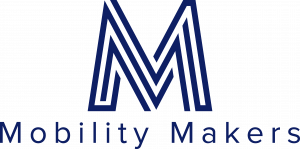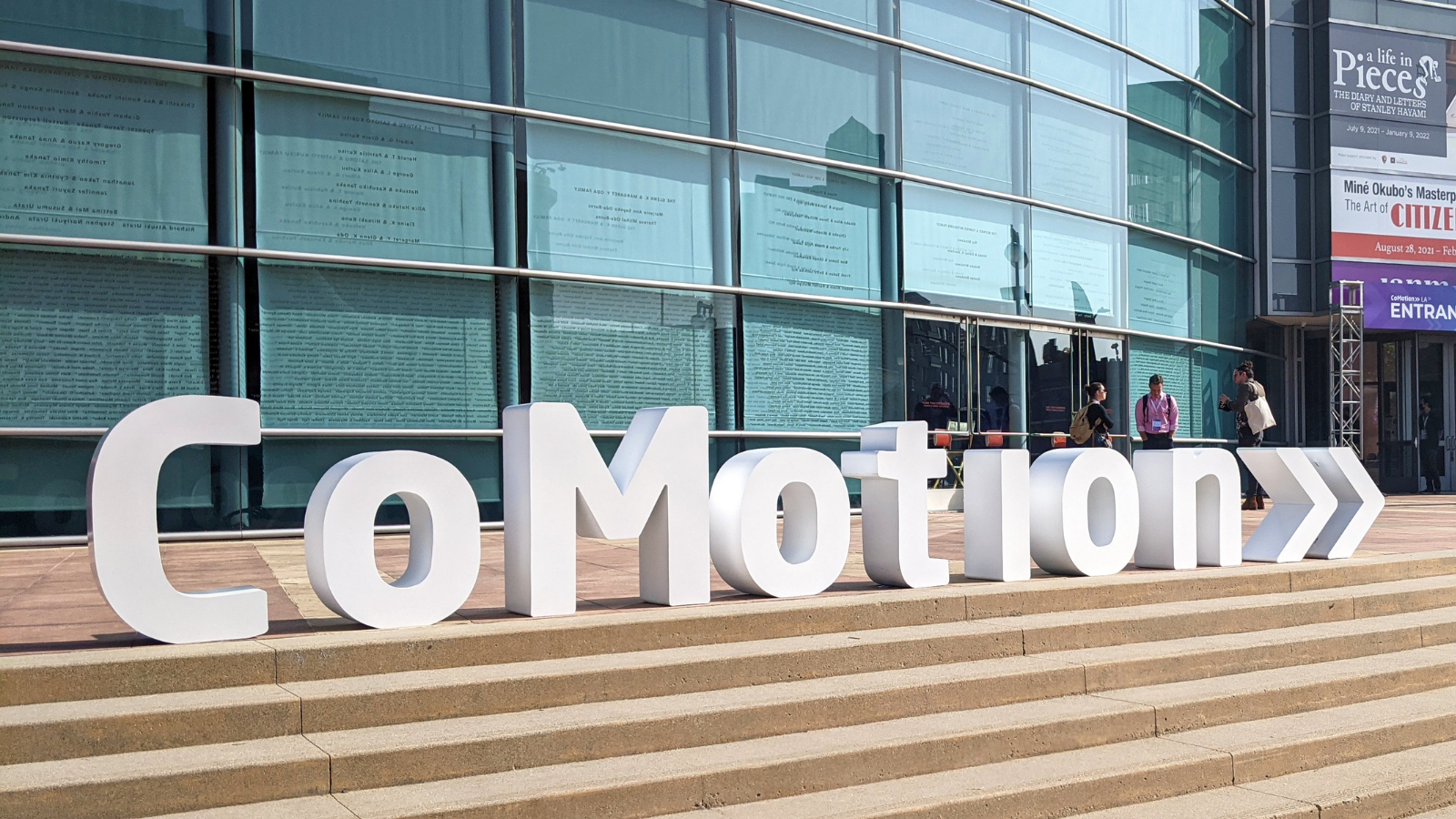From November 16 to 18, Los Angeles became the center of sustainable mobility by hosting the 2021 edition of CoMotion LA, the international meeting of the actors who think and imagine tomorrow’s mobility. Mobility Makers had the chance to be a part of this revolution as a media partner and as a jury of the LA New Mobility Challenge.
This year, many topics were addressed during the three days of conferences, discussions and networking. At least, several major trends emerged, including air mobility and the importance of hydrogen as a new energy for charging electric vehicles (buses, trucks, cars, boats…).
The sustainable mobility is in the air
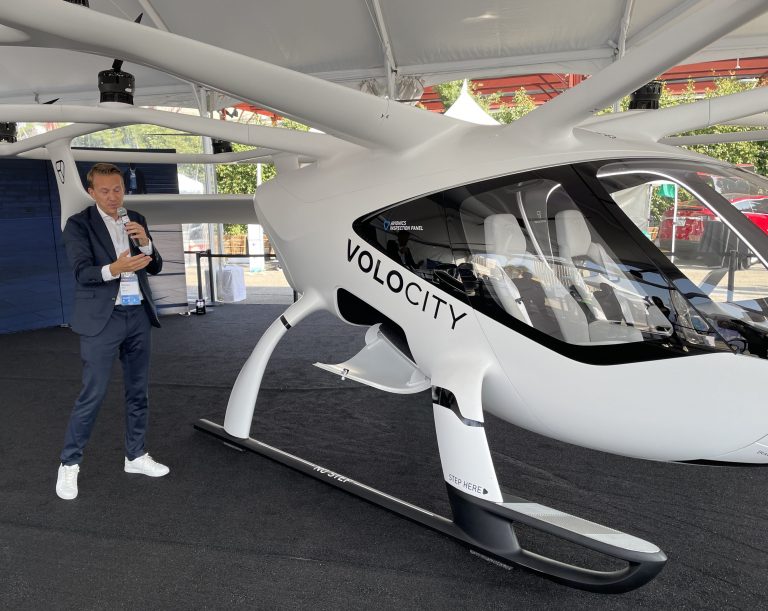
It may be the future, but according to the numerous conferences on the subject, air mobility is one of the challenges of the next few years, with the objective of decongesting cities and reducing travel times.
Cyrus Sigari, co-founder of UP.Partners and specialist in this sector, explained that there are more than 400 companies (American, European, Korean, Chinese…) which are focusing on this new mode of travel.
During CoMotion LA, the companies like Volocopter, Hyundai, which will be operational in 2028, and Wisk presented their projects of eVTOL – aircrafts using electric power to hover, take off, and land vertically.
“For short distances, we have created the VoloCity model which is powered by 18 electric engines and runs thanks to 9 battery packs very easy to change. For the moment, the aircraft needs a pilot but soon it will be fully autonomous,” said Christian Bauer, CCO of Volocopter, who added that the firm also declined VoloConnect for long distances and VoloDrone, an autonomous drone that can carry up to 200 kg.
The company has signed contracts with ADP, RATP, Singapore region and also Japan Airlines to provide transport services for people and goods.
Volocopter has already received nearly 350 orders from Japan Airlines and the Chinese company Geeli.
Hydrogen: fuel for the future
The blue and green hydrogen was at the heart of the debates with the presence of Shell and Air Products, the American leader in hydrogen production.
“We have made significant investments to help build the hydrogen economy. Today there are heavy duty vehicles from Europe to Los Angeles fueled with hydrogen produced, distributed and supplied by Air Products. The key is to scale up, to create the infrastructure so when a business or government wants to make the switch to zero-emission vehicles on a major scale,” said Eric Guter, Air Products VP.
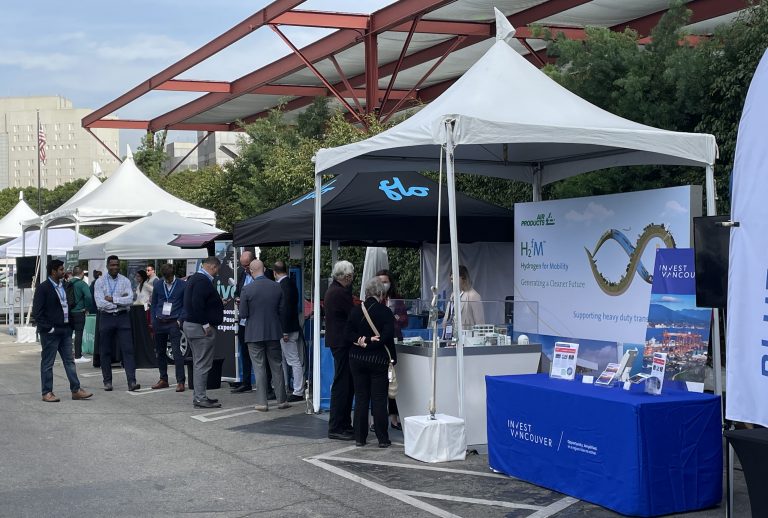
Shell is investing millions of dollars to produce a decaborated liquid hydrogen, as Tom Mourmouras, Commercial Manager of the company, pointed out.
If hydrogen is still mainly used to recharge the batteries of the electric buses and trucks, this technology will quickly find its place for the electric cars.
Free-floating and consumer experience
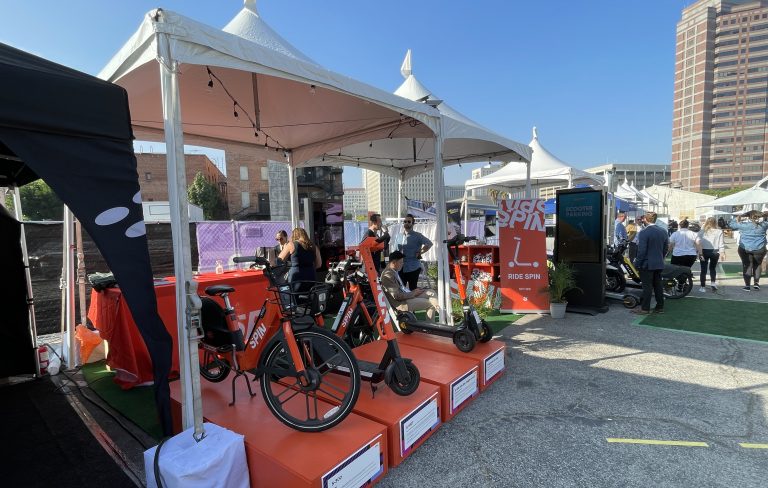
CoMotion LA also allowed several free-floating companies to unveil their latest innovations, especially in terms of safety.
Spin, a Ford subsidiary operating in the United States and Europe, presented its new e-scooter (S-100) equipped with Drover AI technology. Thanks to a box with a camera placed on the front of the vehicle, the operator can detect if the machine is driving on a sidewalk. The goal is to allow Spin to reward good drivers and penalize those who drive on sidewalks and thus make pedestrian areas safer.
Furthermore, the French company Vulog has announced the signing of a contract with Blue Duck for the use of its AiMA technology which allows to put vehicles (buses, e-bikes, e-scooters) at the disposal of consumers.
Another example is Ivee, which offers an on-screen interface to enrich the experience of the Uber or Lyft users. It becomes possible to have access to personalized content (movies, news) during a trip, or even to work by accessing services like Zoom.
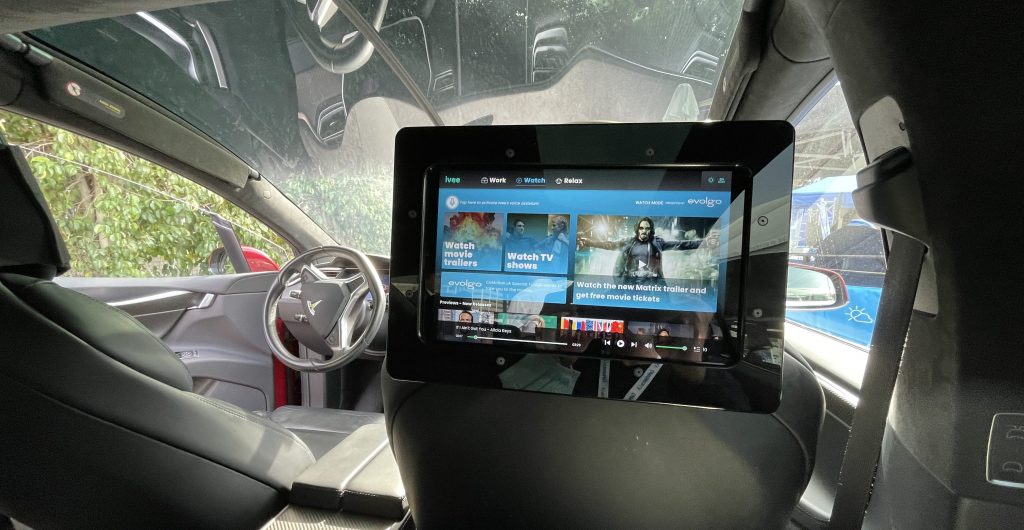
LA New Mobility Challenge
CoMotion LA ’21 would not be complete without the LA New Mobility Challenge.
As a member of the jury, Mobility Makers had to choose the winner from a list of six companies including :
- ChargerHelp – maintenance of charging stations,
- CityData – collection and analysis of travel data,
- ENSO – manufacturer of green tires for EVs,
- Immense – transportation simulator for cities)
- Rhoman Aerospace – enhancing flight control systems for drones
- and Vianova – helping cities to integrate all forms of mobility within their urban space.
From all the innovative projects, ENSO has been chosen as the winner of the challenge. The company develops high quality tyres for EVs and reduces air and ocean pollution. The project was a new step in the process of decarbonizing a polluting industry.

